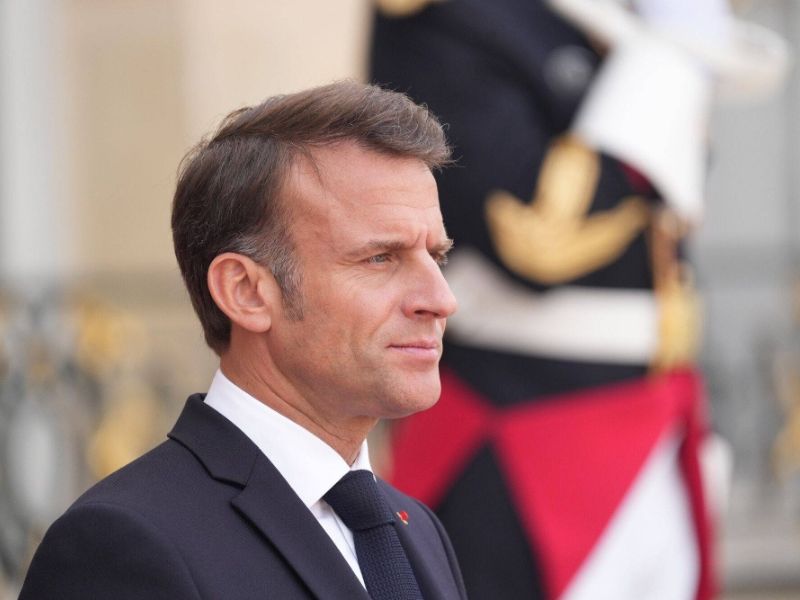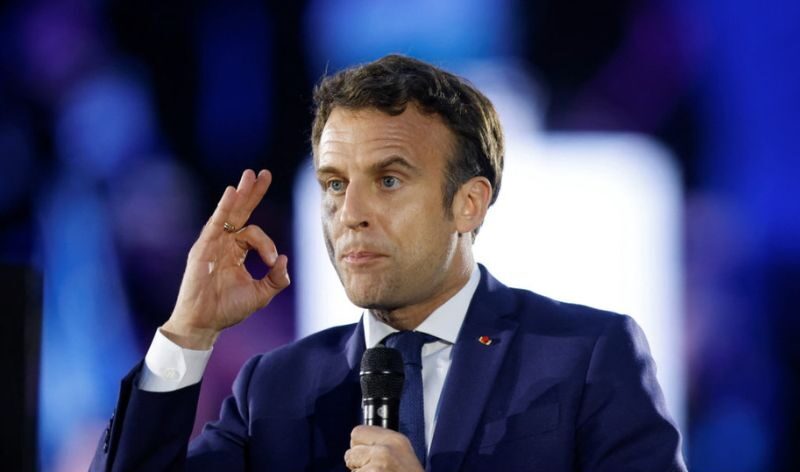European Far-right Triumphs: Macron and Scholz Stumble in EU Election Upset
Far-right parties made noteworthy picks up within the European Union parliamentary races, causing a major disturbance to conventional powers. Italian Prime Serve Giorgia Meloni more than doubled her seats within the EU parliament, whereas the Elective for Germany (AfD) party, despite being nagged by outrage including candidates, overseen to rally sufficient seats to outperform the drooping Social Democrats of Chancellor Olaf Scholz.

The Christian Democrats, driven by EU Commission President Ursula von der Leyen, had as of now moved to the correct on migration and climate ahead of the decisions and remained the biggest gather within the 720-seat European Parliament, situating them as the de facto brokers of the legislature’s extending powers.
Be that as it may, the star of the night was Marine Le Pen’s National Rally party in France, which ruled the surveys to such a degree that Macron quickly broke up the national parliament and called for modern decisions. This move, even though hazardous, underscored Macron’s equitable qualifications and assurance to reply to the electorate’s message. Le Pen’s triumph discourse resounded estimations shared by far-right pioneers over Europe, emphasizing their preparation to address issues like mass movement.

In Germany, the AfD overcame outrages including its best candidate to rise to 16.5%, up from 11% in 2019. The combined result for the three parties within the German administering amalgamation scarcely topped 30%, highlighting the decline of standard parties and the rise of the distant right. This discretionary move may make it harder for the EU to pass enactment, possibly leading to decision-making loss of motion within the world’s biggest exchanging alliance.
Despite the picks up of the distant right, two standard and pro-European bunches, the Christian Democrats and the Communists, remained prevailing strengths. The Greens, on the other hand, were anticipated to lose about 20 seats, falling back to 6th position within the governing body. Macron’s pro-business Reestablish moreover endured misfortunes, reflecting a broader slant of the center losing ground to more extraordinary positions.
The rise of the distant right in these decisions is critical, considering the European Union’s chronicled commitment to limiting hard-right ideologies to the political borders. With their solid appearance, the distant right might presently become major players in forming approaches to relocation, security, and climate.
In reaction to the discretionary move, von der Leyen advertised to construct an amalgamation with the Social Democrats and the pro-business Liberals. Given that the Christian Democrats won seats whereas the other two were misplaced, von der Leyen can arrange from a position of quality, emphasizing steadiness and adequacy in administration.

The EU elections come at a challenging time for the coalition, with voter certainty tried by the coronavirus widespread, financial challenges, and vitality emergencies. Political campaigning often focuses on issues particular to person nations instead of a broader European interface, leading to divided political scenes over part states.
Since the final EU race in 2019, populist or far-right parties have come to power in Hungary, Slovakia, and Italy, and are a portion of administering coalitions in other nations like Sweden, Finland, and before long, the Netherlands. Surveys propose that the populists have an advantage in France, Belgium, Austria, and Italy, signaling a broader drift of rightward shifts in European legislative issues.
President Macron’s choice to break up the French parliament and call for unused decisions reflects the seriousness of the far-right’s advance and his assurance to reply to the electorate’s message. The up-and-coming parliamentary decisions might assist reshape the political scene in Europe, possibly driving more challenging administration scenarios and a reevaluation of EU approaches and needs.
FAQs:
1. What led to the rise of far-right parties in the European Union elections?
The rise of far-right parties in the EU elections can be attributed to various factors, including concerns about immigration, security, and dissatisfaction with mainstream political parties. Economic challenges and a desire for change also played a role in their electoral success.
2. What impact could the far-right’s gains have on EU policies?
The far-right’s gains could make it harder for the EU to pass legislation, leading to potential gridlock in decision-making. It could also shift the focus of EU policies, particularly in areas such as migration, security, and climate, towards more nationalist and protectionist agendas.
3. How is President Macron responding to the far-right’s gains in France?
President Macron dissolved the French parliament and called for new elections in response to the far-right’s victory in the EU elections. This move, though risky, demonstrates his commitment to addressing the electorate’s concerns and maintaining democratic legitimacy.
Must Read:

